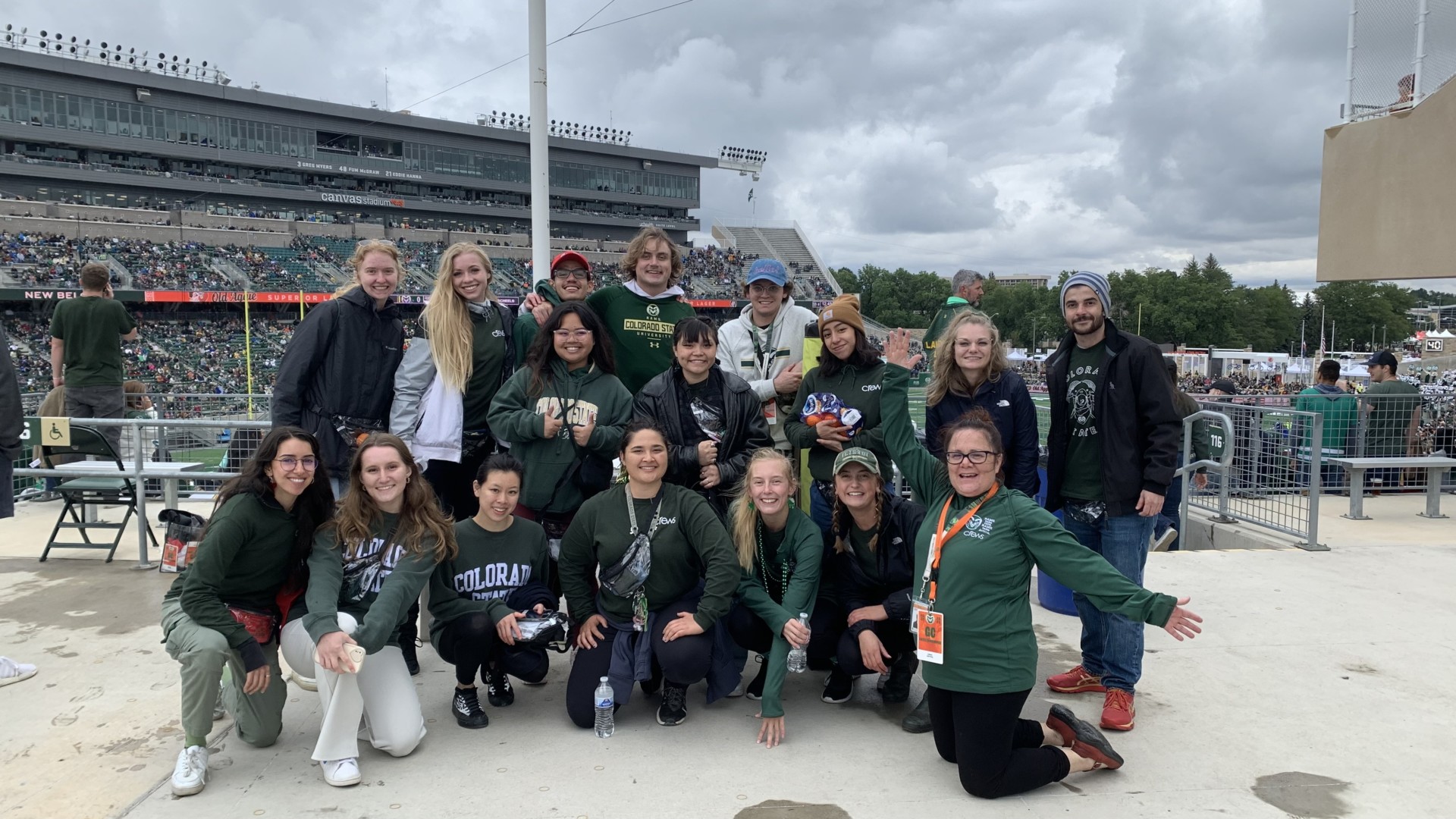
A national organization dedicated to student health and wellness recently celebrated Colorado State University for an innovative peer education group that helps students make safer, healthier decisions about alcohol, sexual health and nicotine.
The American College Health Association honored CSU Health Network’s peer education group, CREWS — Creating Respect, Educating Wellness for and by Students — and Gwen Sieving, the manager of sexual health initiatives and peer education, with its Best Practices in College Health award, recognizing the group’s Rams Take Care, Rams Take Action Football Game Bystander Intervention.
The ACHA is widely known as the voice of expertise in college health and represents over 700 higher education institutions. CSU is in distinguished company, with past awarded schools, including Columbia University, University of Michigan and Cornell University.
“It is an honor to be included in the same category as these other prestigious universities and I am grateful that the hard work of our CREWS peer educators has been recognized on a national level,” Sieving said.
CREWS started providing game-day programming in 2010. With the opening of the new stadium in 2017, CSU Health Network and Athletics saw an opportunity to develop a new culture around game-day alcohol use, resulting in the creation of the RTCRTA bystander intervention. RTCRTA programming aims to encourage students to practice protective behavior by engaging students during game day, which is a high-risk time for social alcohol use.
“What makes this type of programming so great is that the students actually want to participate and are excited to engage in the conversation around safe consumption with us,” said CREWS Peer Educator Sophie Orsund. “It is a fun, simple and incredibly strategic way to engage students on a peer-to-peer level without passing judgment on any choices they might be making that day. At the end of a game, I always leave with a deep sense of pride and fulfillment, knowing that I was a part of game day in such a positive way and had the chance to interact with so many different people.”
In 2018, Patricia Aloise-Young in the Department of Psychology as well as Jennifer Cross in the Department of Sociology who serves as the director for the Institute for Research in the Social Sciences, studied the impact of the bystander intervention on protective behavior. It was found that students who pledged to engage in protective behavioral strategies and subsequently remembered their pledge, reported greater use of both personal and bystander protective behavioral strategies.
“The initiative is showing promise for reducing the negative consequences of college alcohol misuse by fostering bystander and harm reduction behaviors,” said Christina Berg, director of health education and prevention services at CSU Health Network. Berg shared that a research manuscript is currently under review with the Journal of American College Health to share these findings for possible replication at other universities.
“The Football Game Bystander Intervention is a wonderful example of creative, high-impact programming,” said CSU Health Network Executive Director Laurel Halsey. “The CREWS team and their mentor, Sieving, have brought such enthusiasm and engagement with students. I am elated that ACHA recognized this as a best practice in college health.”
Sieving said she is grateful for the evolving partnership with CSU Athletics, as the success of the program couldn’t happen without their support. CREWS Peer Education hopes to expand their game-day presence after recently receiving the Great Plays grant awarded through Molson-Coors.
Great Plays grants fund new or existing programs designed to reduce students’ high-risk alcohol consumption and its harmful consequences. This grant will enable CREWS to further fund the RTCRTA intervention in Canvas Stadium. “I am excited about the future for our bystander initiative and am looking forward to our growth and expansion, made possible by this grant and the support of Athletics.”